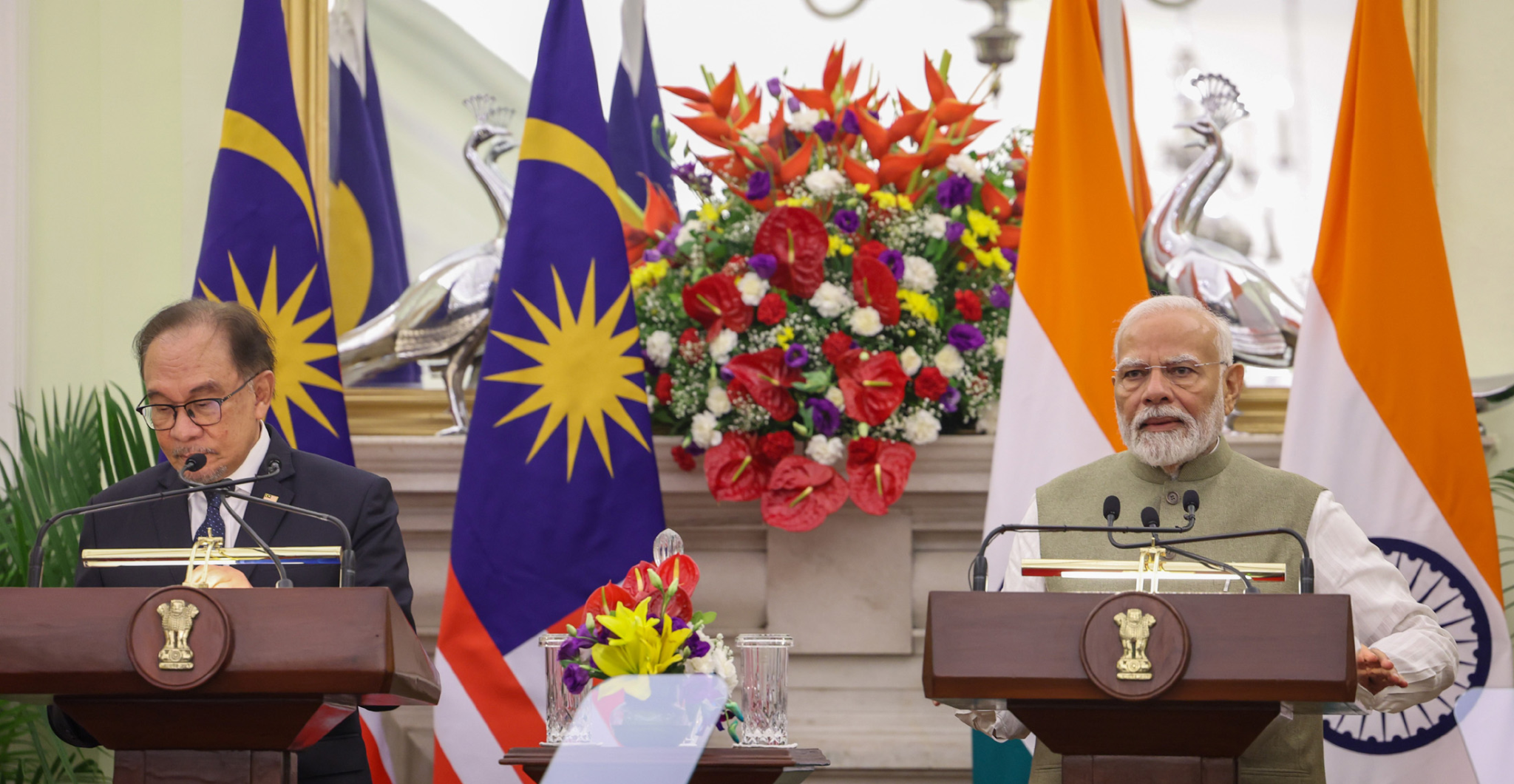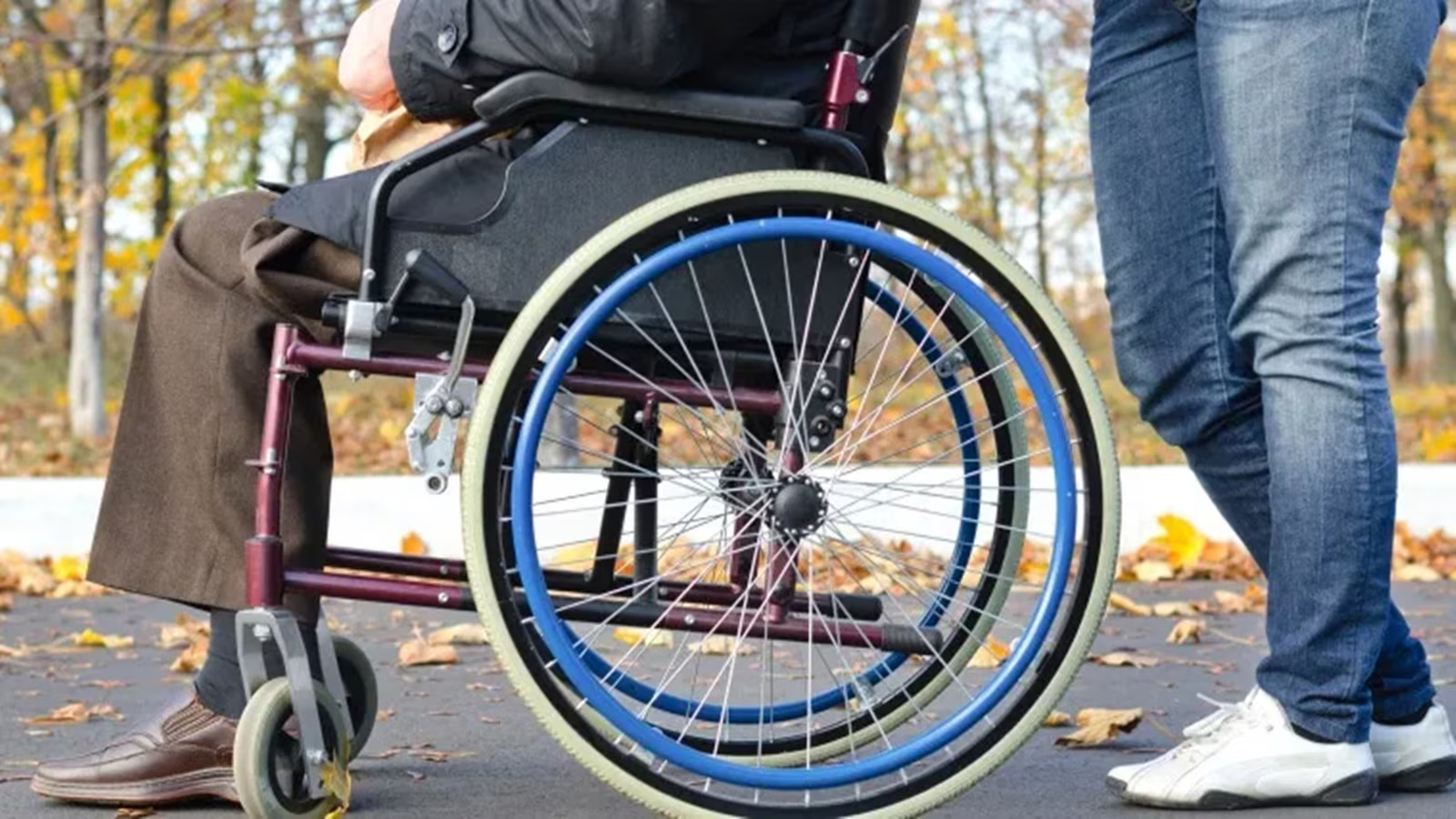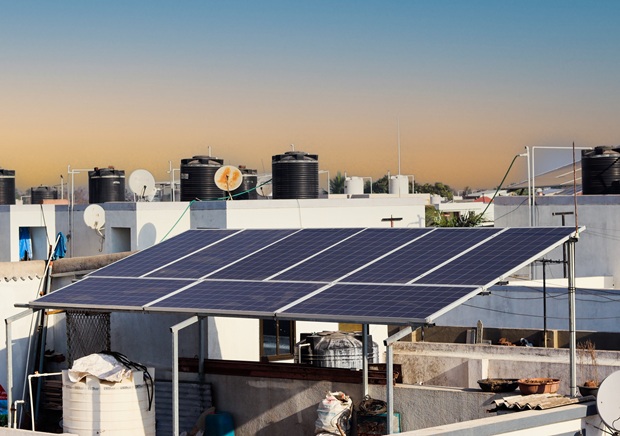- Courses
- GS Full Course 1 Year
- GS Full Course 2 Year
- GS Full Course 3 Year
- GS Full Course Till Selection
- Online Program
- GS Recorded Course
- NCERT (Recorded 500+ Hours)
- Polity Recorded Course
- Geography Recorded Course
- Economy Recorded Course
- AMAC Recorded Course
- Modern India, Post Independence & World History
- Environment Recoded Course
- Governance Recoded Course
- Science & Tech. Recoded Course
- International Relations and Internal Security Recorded Course
- Disaster Management Module Course
- Ethics Recoded Course
- Essay Recoded Course
- Current Affairs Recoded Course
- CSAT
- 5 LAYERED ARJUNA Mentorship
- Public Administration Optional
- ABOUT US
- OUR TOPPERS
- TEST SERIES
- FREE STUDY MATERIAL
- VIDEOS
- CONTACT US
India-Malaysia Comprehensive Strategic Partnership
India-Malaysia Comprehensive Strategic Partnership

On 20 August 2024, the Prime Minister of Malaysia, Dato’ Seri Anwar Ibrahim visited India, accepting the kind invitation of the Prime Minister of India, Shri Narendra Modi to undertake a State Visit.
Background:
- Leaders:
- India: Prime Minister Shri Narendra Modi
- Malaysia: Prime Minister Dato’ Seri Anwar Ibrahim
- Significance: This was the first visit by the Malaysian Prime Minister to South Asia and the first meeting between him and Prime Minister Modi.
- The visit aimed to enhance bilateral relations and upgrade the existing Enhanced Strategic Partnership (2015) to a Comprehensive Strategic Partnership.
Joint Statement on Enhanced Malaysia-India Strategic Partnership (2015)
|
Ceremonial and Diplomatic Highlights of recent visit:
- Reception: Prime Minister Anwar Ibrahim was welcomed with a ceremonial reception at Rashtrapati Bhavan and visited Raj Ghat to pay respects to Mahatma Gandhi.
- Meetings:
- Bilateral Talks: Detailed discussions between the two Prime Ministers.
- Banquet: Hosted by Prime Minister Modi in honor of Prime Minister Anwar Ibrahim.
- Interactions: Meetings with President Smt. Droupadi Murmu and India’s External Affairs Minister Dr. S. Jaishankar.
- Speech: Prime Minister Anwar Ibrahim addressed the Indian Council of World Affairs.
Key Agreements and Outcomes of recent visit :
- Elevation to Comprehensive Strategic Partnership:
- The leaders agreed to transition from the Enhanced Strategic Partnership to a Comprehensive Strategic Partnership, reflecting the deepening and broadening of bilateral relations.
- High-Level Delegation from Malaysia:
- The delegation included Malaysia’s Minister of Foreign Affairs, Minister of Investment, Trade and Industry, Minister of Tourism, Minister of Digital, and Minister of Human Resources.
- Bilateral Cooperation:
- Areas of Cooperation: Political, defence and security, economic and trade, digital technologies, start-ups, fintech, renewable energy, healthcare, higher education, culture, tourism, and people-to-people ties.
- Memorandums of Understanding (MoUs): Exchanged on various fields including:
- Recruitment, Employment, and Repatriation of Workers
- Ayurveda and Traditional Systems of Medicine
- Digital Technologies
- Culture, Arts, and Heritage
- Tourism
- Public Administration and Governance Reforms
- Youth and Sports
- Financial Services
- Economic and Trade Relations
- Trade: Bilateral trade reached a record high of USD 19.5 billion.
- Investments: Encouraged further cooperation and investments across multiple sectors.
- ASEAN-India Trade Agreement: Support for reviewing and enhancing the ASEAN-India Trade in Goods Agreement (AITIGA), aiming for substantial conclusion by 2025.
- Malaysia-India Comprehensive Economic Cooperation Agreement (MICECA): Agreed to convene the 2nd Joint Committee Meeting to align with contemporary economic priorities.
- Digital and Technological Cooperation
- MoU on Digital Technologies: Focused on Digital Public Infrastructure, 5G, quantum computing, cybersecurity, and other emerging technologies.
- Start-ups: Ongoing discussions between Start-up India and Malaysia’s Cradle Fund through an India-Malaysia Start-up Alliance.
- Payment Systems: Promoted local currency settlements in trade and investment.
- Defence and Security
- Cooperation: Agreed to intensify defence collaboration, including joint exercises, R&D, and capacity building.
- Counterterrorism: Condemned terrorism in all forms, with a focus on combating terrorism and transnational organized crime.
- Higher Education and Capacity Building
- ITEC Programme: Allocation of 100 seats for Malaysian nationals in cybersecurity, AI, and machine learning.
- Academic Chairs: Establishment of Ayurveda Chair at Universiti Tunku Abdul Rahman and Tiruvalluvar Chair of Indian Studies at Universiti Malaya.
- Sustainable Development and Climate Action
- International Initiatives: Support for India’s International Solar Alliance (ISA) and Coalition for Disaster Resilient Infrastructure (CDRI).
- International Big Cat Alliance (IBCA): Malaysia’s founding membership; encouraged swift conclusion of the Framework Agreement.
- Cultural and Tourism Exchange
- Visa Regimes: Relaxed visa requirements to boost tourism.
- Visit Malaysia 2026: Designation of 2026 for promoting tourism and welcoming additional Indian tourists.
- Connectivity and Aviation
- Air Travel: Encouraged discussions to enhance air connectivity between India and Malaysia.
- International Cooperation
- UN and Multilateral Fora: Agreed to strengthen cooperation at the UN, including support for India’s permanent membership in a reformed UN Security Council.
- ASEAN: Malaysia’s upcoming ASEAN Chairmanship and commitment to enhancing ASEAN-India relations.
Future Engagements
- Invitation: Prime Minister Anwar Ibrahim invited Prime Minister Modi to visit Malaysia in the near future.
Conclusion
The visit and the subsequent agreements mark a significant step in elevating the India-Malaysia relationship to a more strategic and comprehensive partnership, focusing on diverse areas of mutual interest and cooperation.
India-Malaysia Bilateral RelationsHistorical Background
People-to-People Relations
Bilateral Institutional Mechanisms
Additional Joint Working Groups:
Economic and Commercial Relations
Bilateral Investments
Bilateral Initiatives and Collaboration
Defence Cooperation
Education
Traditional Medicine
Indian Community and PIOs
Tourism and Civil Aviation Cooperation
COVID-19 and Vande Bharat Mission
These elements highlight the multifaceted and evolving nature of the India-Malaysia relationship, with ongoing developments in trade, investment, defense, education, and cultural exchange. |




